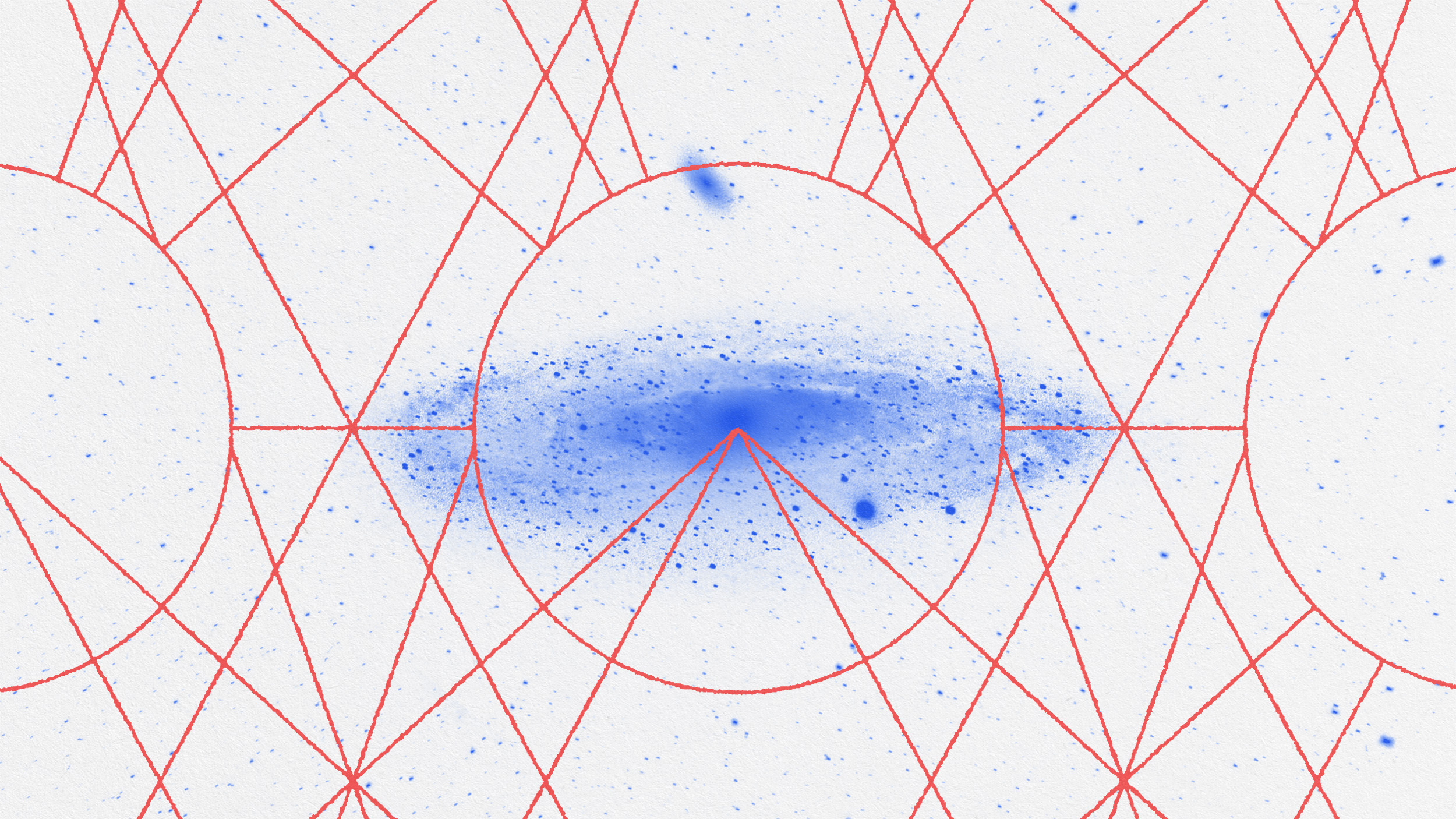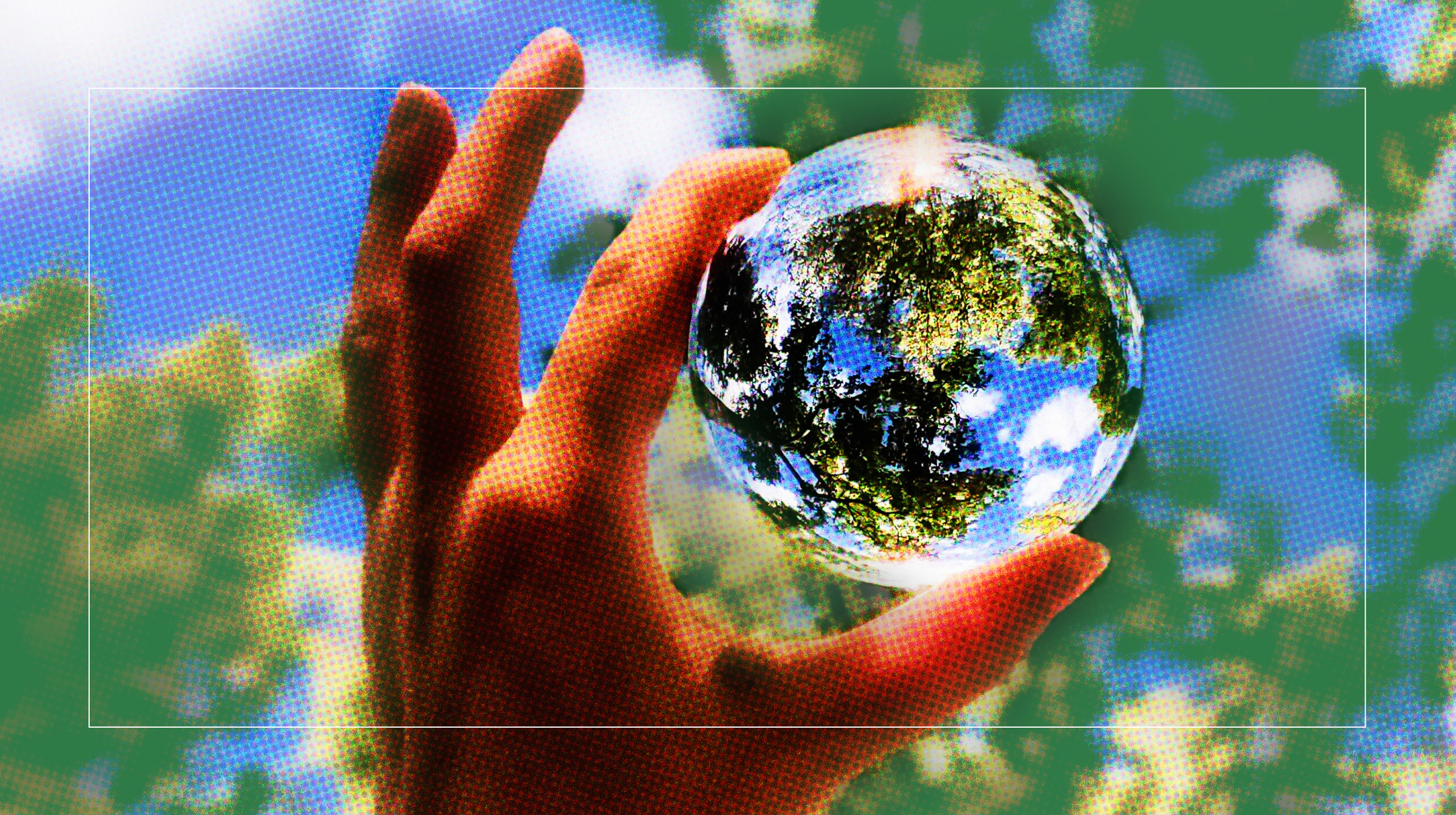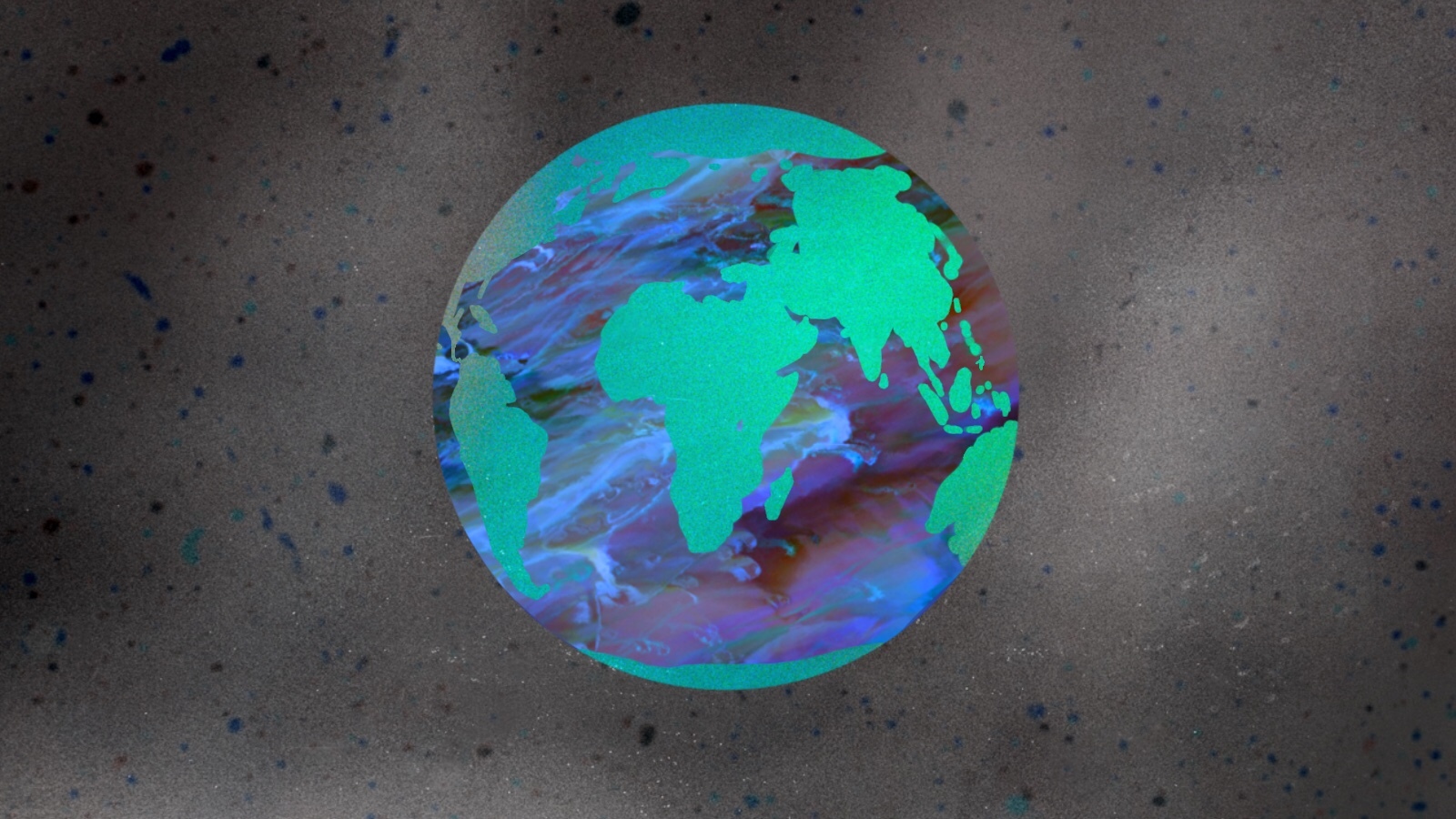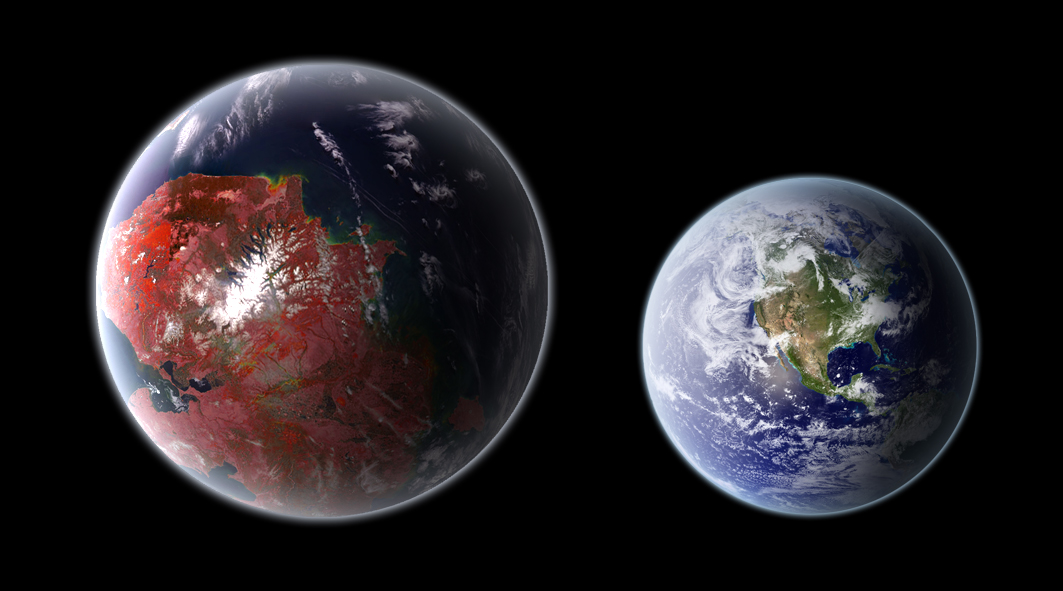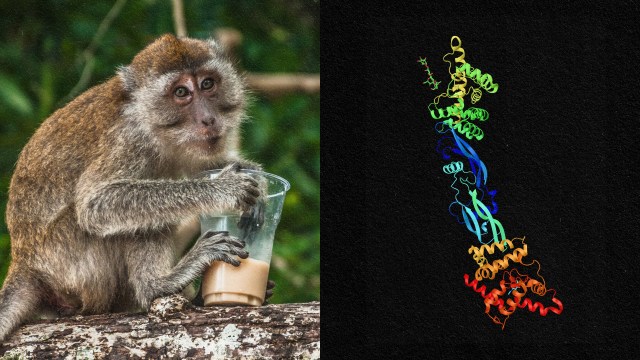“Biocentrism”: A scientific answer to the meaning of life

Credit: Tryfonov / Adobe Stock
- Humans are a paradox — half beasts, half gods, capable of the most beautiful creations and the most atrocious crimes.
- Our success has lulled us into a false sense of confidence, leading us to believe that we are above Nature.
- A new biocentric vision treats all life as sacred. We matter because we are the only life-form that knows what it means to matter.
A Universe without life is a dead Universe. A Universe without minds has no memory. A Universe without memory has no history. The dawn of humanity marked the dawn of a mindful Universe, a Universe that after 13.8 billion years of quiet expansion found a voice to tell its story. Before life existed, the Universe was confined to physics and chemistry, stars forging chemical elements within their entrails and spreading them across space. There was no purpose to any of this, no grand plan of Creation. Through the unfolding of time, matter interacted with itself, as gravity sculpted galaxies and their stars. The emergence of life on Earth changed everything. Living matter doesn’t simply undergo passive transformations. Life is “animated” matter, matter with purpose, the purpose of surviving. Ecotheologian Thomas Berry wrote, “The term animal will forever indicate an ensouled being.” Life is a blending of elements that manifests as purpose. This sense of purpose, this autonomous drive to survive, is what defines life at its most general.
And in our world, the mountains, rivers, oceans, and air sustain every living being. Life elsewhere may be very different from life here. But if it exists, it must share the same urge to survive, to perpetuate itself in deep communion with its environment. The alternative, of course, is extinction. When life exists, it will struggle to remain existing. Life is matter with intentionality.
Life without higher levels of cognition doesn’t know itself as living. It knows it needs to survive and will do what it can to remain alive, developing survival strategies with varying levels of complexity. It will search for food, eat when hungry, and sleep when tired; it will find or build shelter; it will protect itself and its young; it will fight to remain alive through force or strategy, as even plants are believed to do. Species evolved all sorts of remarkable tricks and weaponry to stay alive. Different animals have a range of emotions that may be quite expansive, although it is hard to truly understand what goes on in their psyches. Some may feel joy or sadness; some may help members of their species and even of other species, developing a true sense of companionship and caring. (Why else would we have pets?) But deep as their emotions might be, animals don’t ponder the meaning of their existence. They don’t have the urge to tell their stories and wonder about their origins. We do.
And what have we done with this remarkable ability? We became expert hunters and warriors, we became artists and storytellers, we worshipped gods and coveted love and power. We became a paradox, half beasts, half gods, capable of the most beautiful creations and the most atrocious crimes. We became the greatest lovers and the greatest murderers, thinking ourselves masters of this planet. We have turned our backs to the teachings of our ancestors and Indigenous cultures, who worshipped the land as their mother and the animals as their peers. We can tame much of what we fear, from fire to lions, and this power makes us giddy. But our ancestors knew, as we do, that we can’t tame Nature. We can bend the course of rivers and raze forests, we can bring whole species into extinction, but we can’t control the emergence of new diseases or stop cataclysmic events from killing us. We can kill wolves and tigers but not stop volcanoes from erupting. We are big and we are small, powerful, and limited.
Our success has lulled us into a false sense of confidence, leading us to believe that we are above Nature. But our planet, vast as it is, is limited, and it is responding to our voracity in ways that might destroy us or, at the very least, compromise the future of our species and countless others. We coevolve with Nature and can’t extricate ourselves from its dynamics. To believe we can is our biggest mistake. Still, this is what we have attempted to do, creating a chasm separating us from the rest of Nature. We built huge cities and factories and country-sized mechanized agricultural monocultures, pushing wilderness to the unreachable fringes of the land. We consumed the planet’s entrails, the oil and gas and coal, to feed our industrial growth. We lost touch with our evolutionary origins, with our roots in the wild, and we have forgotten who we are and where we came from. We have desecrated the land that sustains us, treating the world as our property.
This old narrative of the human has reached its end. The time has come for new humans, humans who understand that all forms of life are codependent, who have the humility to position themselves alongside all living creatures, and not above them. We have seen that this new narrative for humanity is founded on a confluence of cultures, merging Indigenous traditions with our growing scientific knowledge of the trillions of worlds around us. This new vision for humanity combines reason and spirituality, the material and the sacred, refusing to objectify the natural world. The fundamental tenet of this biocentric view is that a planet that holds life is sacred. And what is sacred must be revered and protected. A planet that holds life is profoundly different from the countless barren worlds spread across the vastness of space, marvelous as they might be. A planet that holds life is a living planet, and a living planet is where Cosmos and life embrace each other and create an irreducible wholeness. And of all the planets that may hold life in this galaxy and others, ours is a beacon of hope for being home to a species of storytellers.
The more we look to other worlds in search of signs of life, the more we realize how rare Earth is, how rare life is, how rare we are. We are the cosmic voice, capable of telling the cosmic story, and we need to rise above our destructive urges and our greed for immediate gratification to reorient our future. The story we have been telling until now, the Copernican narrative that we don’t matter in the big scheme of things, that Earth is just a planet among trillions of others, is simply wrong. We matter because we are the only life-form that knows what it means to matter. We matter because we now understand how we are evolutionarily connected to every other life-form on this planet, descended as we are from the same bacterial ancestor. We matter because we know that life here is contingent on the whole cosmic history, from the properties of subatomic particles to the expansion of the Universe. We matter because we are how the Universe ponders its own existence. We matter because the Universe exists through our minds.
Biocentrism is a vision for a morally aware humanity that celebrates and protects all forms of life as the only way to secure a healthy future for our project of civilization.
Moral rules are hardly universal. Those that to one group are terrorists, to another are freedom fighters. Values esteemed in one culture are criminalized in another. Different religions and political philosophies have different moral codes, and these differences have led to war and destruction across millennia. But the new understanding of how rare life is in this solar system and probably in most others should elevate one moral rule above all others. We no longer should think of the Universe only as a physical system. We must think of the Universe as home to life. The sacredness of a living planet is the central tenet of our post-Copernican narrative. We protect what is rare and precious. Life on Earth is rare and precious, planet and biosphere entangled in a single wholeness.
There is no life without Earth, but there is Earth without life. To transform Earth into one of our barren solar system neighbors would be the greatest crime humankind could commit against itself, against all life, against the Cosmos. Biocentrism is a vision for a morally aware humanity that celebrates and protects all forms of life as the only way to secure a healthy future for our project of civilization. It reaches beyond pre-Copernican human exceptionalism (we are the center of all Creation) and Copernican nihilism (we are nothing in the cosmic vastness), given that it weaves humankind into the web of life, the irreducible wholeness that enshrines the planet. Biocentrism presents humankind with a collective purpose, since, barring Earth experiencing a cataclysmic collision with a large asteroid, we alone have the power to preserve or destroy the biosphere. The alternative — inaction and neglect — will bring great suffering to all sectors of the population, especially — but certainly not exclusively — to those of weaker economic means and to our children and subsequent generations. The choice should be obvious.
